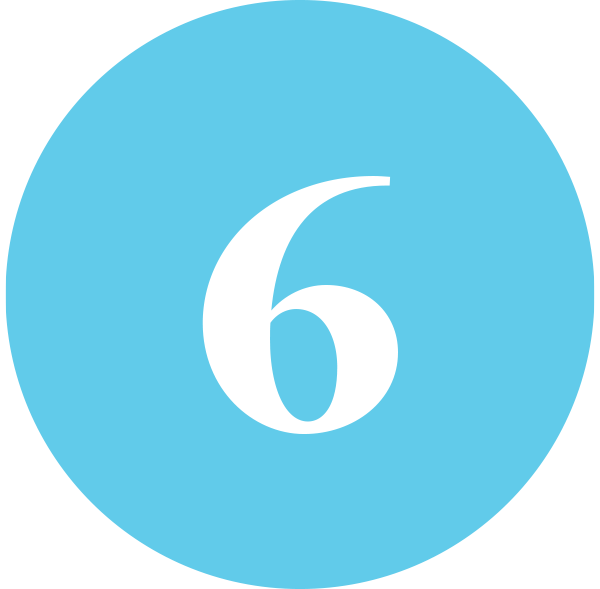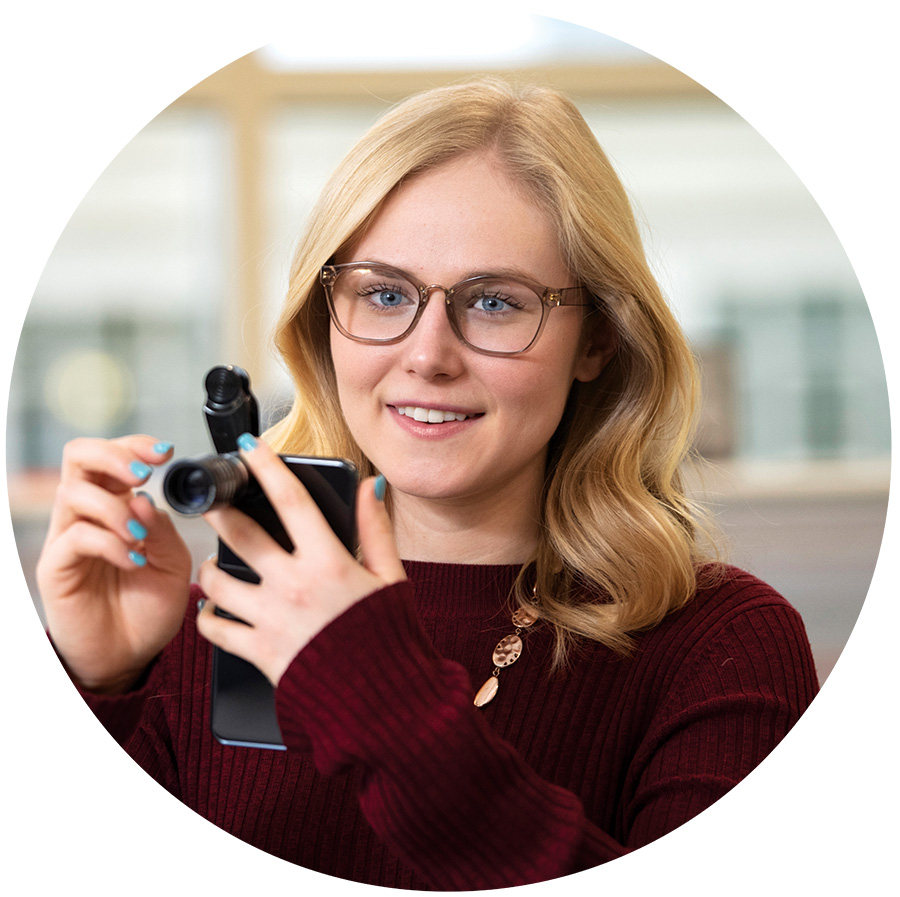
AS A CHILD, Rebecca Rosenberg ’20 had such poor vision, reading meant her nose was literally stuck in a book — just so so she could decipher the words.
Rosenberg was an infant when she was diagnosed with oculocutaneous albinism, a genetic condition causing involuntary eye movements and reduced clarity. The impairment can’t be completely corrected with eyeglasses, so she sought high-tech visual assistance. That’s how she discovered a well-stocked assistive technology market of bulky document cameras and talking screen readers mostly designed for those who are blind or nearly blind.
“They were actually harder to use than they were helpful, especially in a classroom environment,” says Rosenberg, who still holds her phone inches from her face to read text messages.
The biomedical engineering major imagined a device that could be customized to a user’s specific vision needs – she just had to design it. And she did. ReBokeh is a smartphone app that allows users to adjust live images for easier viewing. It’s paired with attachable lenses that enhance smartphone camera capabilities.

“I was thinking about what already fits into people’s lives that could be leveraged to help them. Well, the smartphone in your pocket is a powerful little thing,” Rosenberg says.
When Rosenberg pitched her plan for ReBokeh at Bucknell’s 2019 BizPitch, she didn’t expect to win the competition sponsored by Bucknell’s Small Business Development Center. She came away with the top prize — $3,000 in seed money.
Next up is the development process, which will take more time than she has left in her senior year. But Rosenberg says she’s already enjoying a return on her investment: “This whole experience has made me feel like I’ve found what I’m supposed to do moving forward, and that’s to create a world where everyone can simply see.” — Brooke Thames